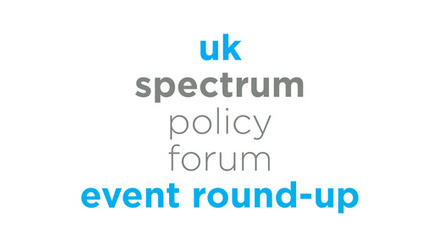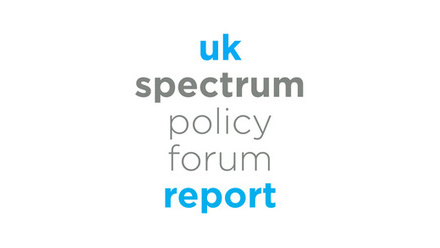UK SPF Event Round-up: July Plenary 2024
The UK Spectrum Policy Forum (SPF) Plenary recently convened to launch an independent study ‘Exploring a new framework for defence spectrum sharing in the UK.’ The event offered discussions on the evolving landscape of spectrum sharing, focusing particularly on structuring a potential framework to enable future sharing arrangements between the Ministry of Defence (MoD) and civilian users. The topics highlighted both existing and future frameworks for spectrum use, with a keen eye on peacetime operations and the integration of various stakeholders, including utilities and satellite IoT operators.
Current Sharing Arrangements and Technical Considerations
The MoD currently shares approximately 80% of its spectrum, though this sharing is not dynamic. The need for more agile and efficient sharing frameworks is becoming increasingly apparent as spectrum demands continue to rise. The 2022 Public Sector Spectrum Release (PSR) Programme aimed to clear spectrum for civilian use, which underscored the growing need for spectrum resources to accommodate various users.
UK SPF Report: Exploring a new framework for defence spectrum sharing in the UK
Globally, the spectrum landscape is evolving, with the next World Radiocommunication Conference (WRC) considering spectrum identification in the 7-8 GHz and 50 GHz ranges, which include NATO-owned bands. The UK's approach may draw parallels with the US's Citizens Broadband Radio Service (CBRS), although the latter is a country-specific initiative.
A high-level technical assessment of civilian bands is underway to explore potential sharing arrangements, particularly in light of the increasing interference-prone environment in which the MoD operates. The study also emphasizes the need for enhanced data collection and sharing to align defence and civilian use cases more effectively.
"I am pleased to present this independent study by LS telecom, which lays the groundwork for future studies and discussions as we navigate the evolving landscape of spectrum management; this framework and recommendations will be instrumental in shaping policies that balance the needs of both civilian and military users. The release of this study marks a significant step forward in the UK's efforts to lead the way in spectrum management solutions, ensuring that incumbent and new users can coexist and thrive in an increasingly connected world”.
Path Forward: Challenges and Potential Scenarios
The study proposed several high-level scenarios for future spectrum sharing, addressing technical, procedural, legal, and regulatory aspects. There is a consensus that the existing framework needs reform to reduce administrative burdens and streamline sharing processes. One suggestion was to implement an automated Dynamic Spectrum Access (DSA) solution to simplify procedures.
It was also suggested establishing a separate organisation to coordinate and enforce sharing frameworks. Such a body could help ensure that spectrum sharing meets both MoD and civilian requirements efficiently and transparently.
Following the report launch, the UK SPF invited colleagues from the MoD, MITRE - representing the international experience -, and industry (namely PMSE) to discuss key points from the report. Panellists acknowledged that the current tools and frameworks for spectrum sharing with the MoD are not entirely fit for purpose, especially given the procedural and technical constraints. Issues such as the predictability of spectrum availability, especially for civilian users, and the obfuscation of spectrum use to protect sensitive operations, present significant challenges.
A key point of discussion was the concept of a pre-emptive capability, which would allow the MoD to reclaim spectrum when necessary, potentially impacting economic considerations for civilian use. The framework for sharing must also account for the unique operational profiles of various stakeholders, ranging from licensees in adjacent bands to those needing limited-time access in specific geographic zones.
In summary, the panel emphasized the need for a more flexible and forward-looking spectrum sharing framework. Enhanced collaboration between the MoD and civilian users, along with clear regulatory guidelines and innovative technological solutions, will be critical in addressing the growing demand for spectrum access. The ongoing dialogue and studies will continue to shape the future of spectrum sharing in the UK, balancing national defence needs with the expanding requirements of civilian users.
Slides
Contact us

Tales Gaspar
Tales has a background in law and economics, with previous experience in the regulation of new technologies and infrastructure.

Sophie Greaves
Sophie Greaves is Associate Director for Digital Infrastructure at techUK, overseeing the Telecoms Programme, the Data Centres Programme, and the UK Spectrum Policy Forum.





